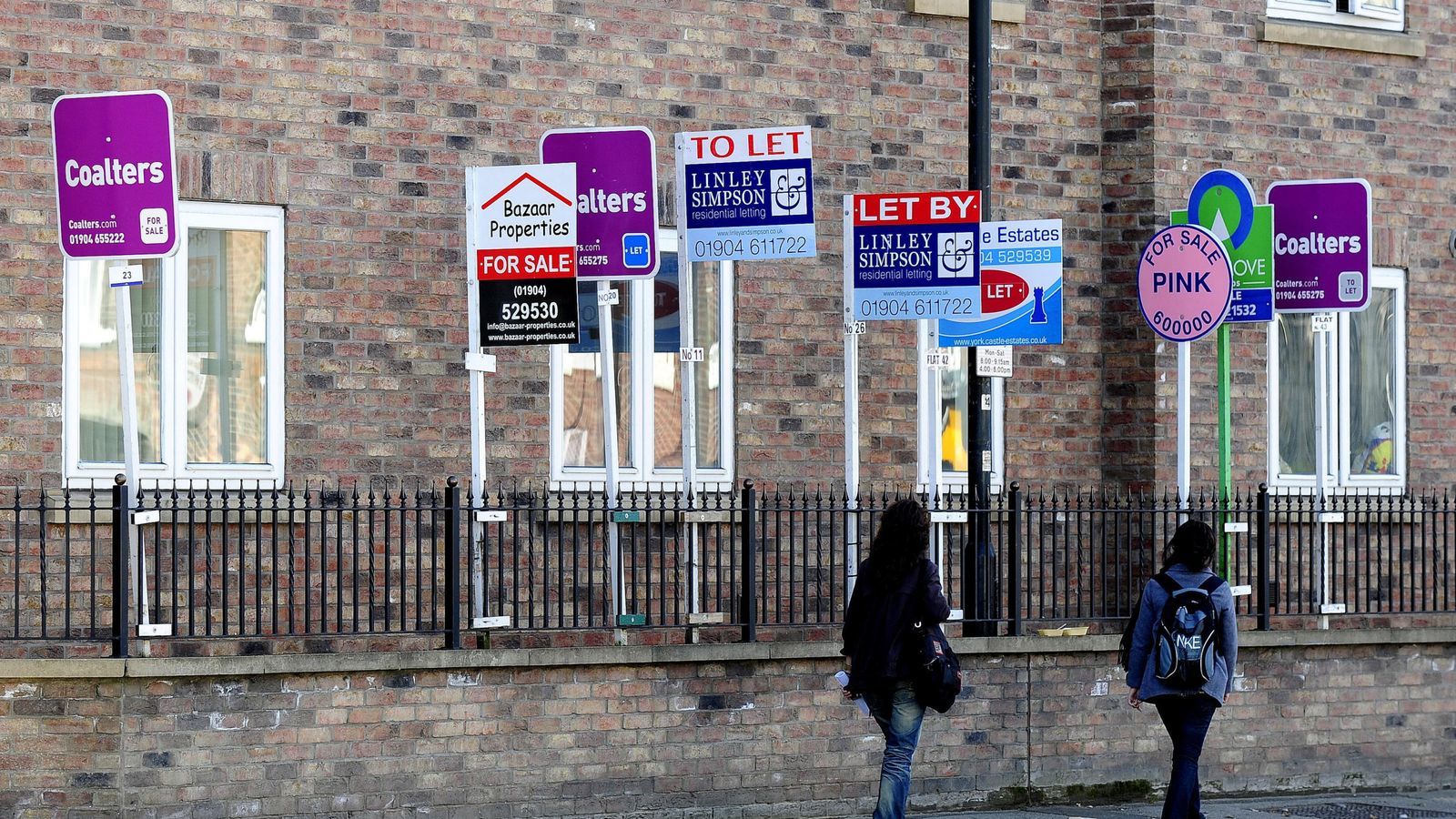
Foxtons cashes in on London rents aided by 'longer non-cancellable tenancy deals'
The London-focused estate agency Foxtons has been accused of "boasting" after recording a 27% leap in lettings revenue, partly aided by a focus on securing "longer non-cancellable terms" from tenants.
The company reported a 10% increase in total revenue to £32.9m during the first three months of the year - driven by its lettings division which contributed £22.8m of that sum.
Poor availability and high demand saw rents rise by an inflation-busting 20% in 2022, with the most recent data from HomeLet showing costs still going up.
The average London monthly rent stands at just under £2,000, it reported.
The private rental market has been boosted by growing affordability concerns over house purchases as the Bank of England raises its main interest rate to combat high inflation.
"Organic revenue growth was underpinned by operational improvements and an increase in average revenue per transaction", Foxtons said of its lettings performance.
"Growth in average revenue per transaction includes a focus on securing longer non-cancellable tenancy terms (resulting in a greater proportion of revenue being recognised at the start of the tenancy), increased cross sell of our higher value property management service, and higher average rental prices."
Longer tenancy terms are potentially attractive to all parties.
 House prices have eased back while the rental market has been described as 'frenzied'
House prices have eased back while the rental market has been described as 'frenzied'
That is because landlords have greater sight over their short term yields while such deals also give tenants clarity over their costs, despite being locked in for longer.
The shortage of properties is a strong bargaining chip for Foxtons while a recent report for the Royal Institution of Chartered Surveyors warned that fierce competition for rented properties would continue to squeeze prices higher.
It described the lettings market as "frenzied".
Dan Wilson Craw, acting director of the campaign group Generation Rent which speaks up for private renters, told Sky News that tenants were being squeezed horribly by the lettings market.
He said of Foxtons' performance: "This is more to do with the long-term failure to build enough homes to meet demand than Foxtons' operational nous.
"But it is nevertheless grim to see the company boasting about practices that sound like forcing tenants into longer fixed term tenancies or paying multiple months' rent up front.
"Generation Rent has heard from renters who have been told by agents that the only way to secure a tenancy is to sign up for a two- or three-year term, or pay more up front.
"In a normal market, where tenants had a reasonable choice, Foxtons wouldn't be able to name their terms in the same way."
The Office for National Statistics released data on Thursday showing that Britons starting new private-sector housing tenancies spent an average of 26.8% of their income on rent in March.
That was up from 25% in March 2019.
The company, like its rivals nationwide, has struggled in sales of properties.
Transactions and prices have fallen amid the cost of living crisis and the backdrop of rising interest rates, which have made mortgages more expensive.
That slowdown in buying activity was particularly acute in the wake of the Liz Truss government's disastrous mini-budget of last September that spooked financial markets and forced a spike in home loan costs.
While the damage inflicted on rates from the so-called growth plan has now largely been eroded, Foxtons said on Thursday that sales revenues were 16% down on the same quarter last year due to a reduction in completions.
It blamed the fall on the drag caused by the mini-budget.
Sales typically take four months from a price being agreed to exchange.
But it was more upbeat on the future, telling investors: "During the quarter, we saw an increase in instruction market share and we completed the highest number of quarterly viewings in the last 5 years.
"Combined with growing levels of buyer demand, this has supported good growth in the value of the under-offer pipeline over the course of the first quarter."










